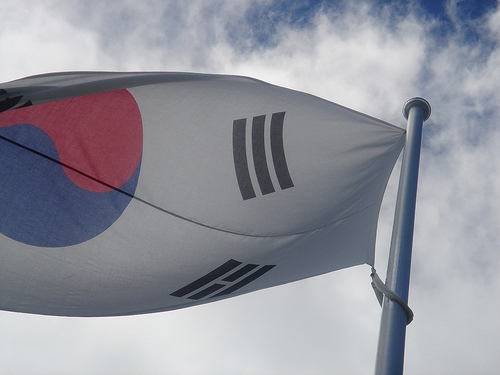
Why market expectations for Korea's interest rate policy just made a U-turn
Clue: There are political factors.
According to DBS, there has been a U-turn in market expectations for the Bank of Korea’s (BOK) interest rates policy, due to the influence of political factors of late.
President Park nominated Choi Kyung Hwan as the new finance minister last week, as part of her cabinet reshuffle aimed at regaining public support after the ferry disaster in April.
Here's more from DBS:
Choi is a ruling party lawmaker and is widely seen as progrowth. Immediately following the nomination announcement on 13 June, the short-term KTB yields have fallen. The spread between the 1Y interest rate swap yield and the 3M CD rate has turned negative, signaling that investors have fully removed the expectations for BOK rate hikes on the 1Y horizon and started to look for rate cuts.
The rate-cut expectations are overdone, in our view. The sentiment-induced economic slowdown should be temporary and one-off.
Consumption data deteriorated in April after the ferry disaster. But the latest figures for May showed that domestic motor vehicle sales have rebounded modestly to 1.7% YoY, up from 0% in Apr14. The BOK is likely to cut GDP growth forecasts during the next policy review in July.
Nonetheless, their forecast revisions should mainly reflect the disappointing results in 2Q14 rather than the outlook ahead.
In order to shore up sentiment and prevent a prolonged growth slowdown, policymakers would prefer to employ fiscal and housing policies such as boosting budget spending on social welfare and relaxing the regulations on home purchases. The space of cutting interest rates is very limited. Core CPI inflation has risen to 2.2% YoY in May14, close to the benchmark interest rate of 2.50%.
The upward price pressures should have increased further this month due to the recent surge in global oil prices as a result of Middle East tensions. Higher inflation numbers should be enough to keep the BOK from cutting rates.
We expect the BOK to relax the rhetoric over the rates policy rather than taking actual actions. Shifting away from the hawkish rhetoric and adopting a more neutral approach could help play down expectations for KRW appreciation, so as to protect exports competiveness in the context of domestic demand slowdown.
























 Advertise
Advertise






